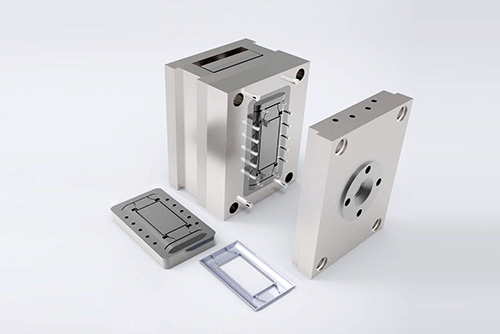1. Cold and heat fatigue resistance
Some molds are in the state of repeated heating and cooling during the work process, which causes the surface of the cavity to be pulled and the stress of the pressure changes, causing surface cracking and flaking, increasing friction, hindering plastic deformation, reducing dimensional accuracy, resulting Mold failure. Hot and cold fatigue is one of the main forms of hot work die failure. This type of Dongguan precision mold parts should have high resistance to cold and hot fatigue.
2. Strong toughness
The working conditions of Dongguan precision mold parts are mostly very bad, and some often bear a large impact load, which leads to brittle fracture. In order to prevent the mold parts from being brittlely broken during work, the mold should have high strength and toughness.
The toughness of the mold mainly depends on the carbon content, grain size and microstructure of the material.
3. High temperature performance
When the working temperature of the mold is higher, the hardness and strength will decrease, resulting in early wear or plastic deformation of the mold and failure. Therefore, the mold material should have high stability against tempering to ensure that the mold has high hardness and strength at the working temperature.
4. Corrosion resistance
When some molds such as plastic molds work, due to the presence of chlorine, fluorine and other elements in the plastic, after heating, the strong corrosive gases such as HCI and HF are resolved, eroding the surface of the mold cavity, increasing its surface roughness, and aggravating wear failure.
5. Fatigue fracture performance
In the process of Dongguan precision mold parts, under the long-term effect of cyclic stress, it often leads to fatigue fracture. Its forms are low energy multiple impact fatigue fracture, tensile fatigue fracture contact fatigue fracture and bending fatigue fracture.
The fatigue fracture performance of the mold mainly depends on its strength, toughness, hardness, and the content of inclusions in the material.



 skype
skype